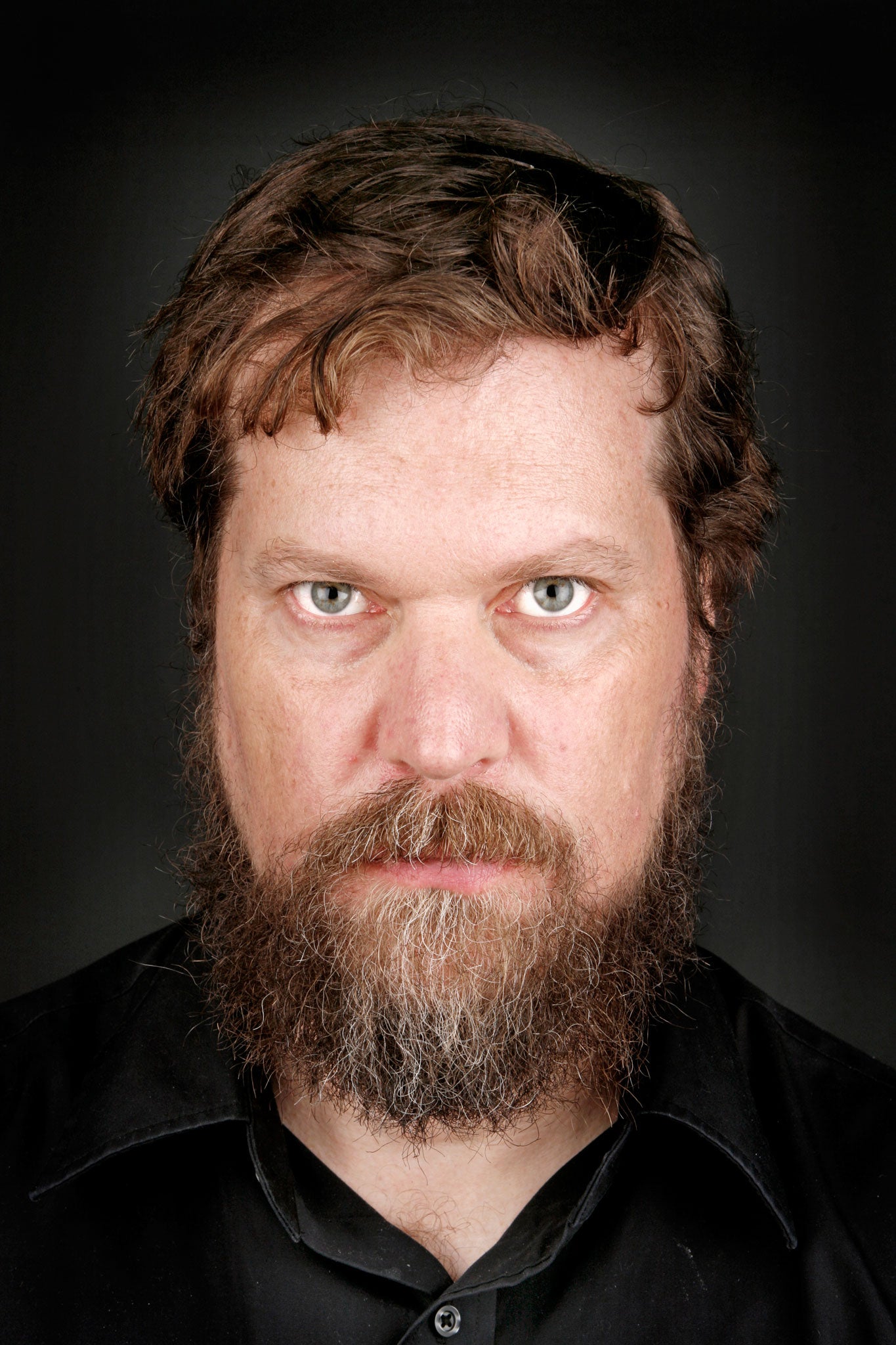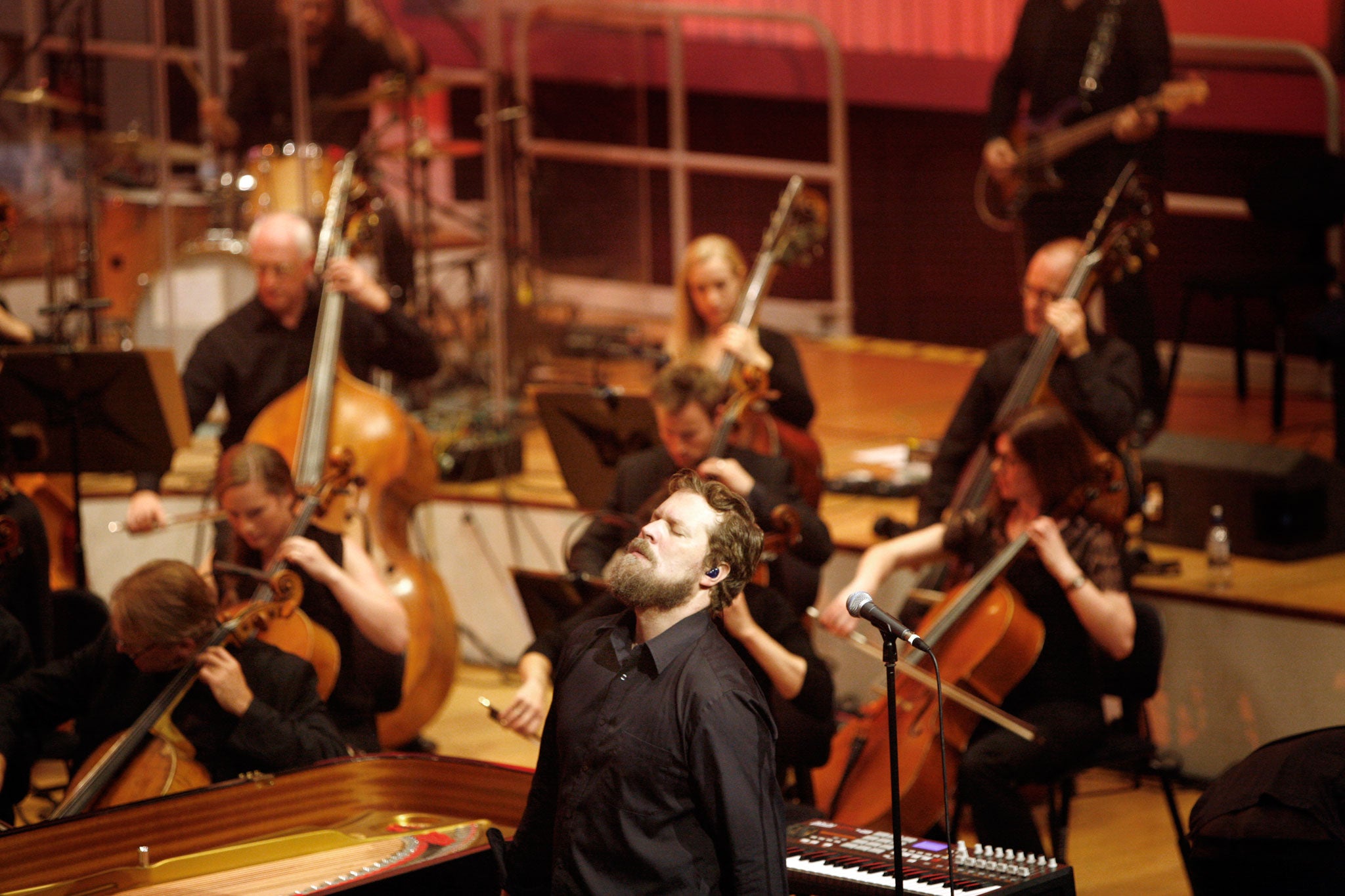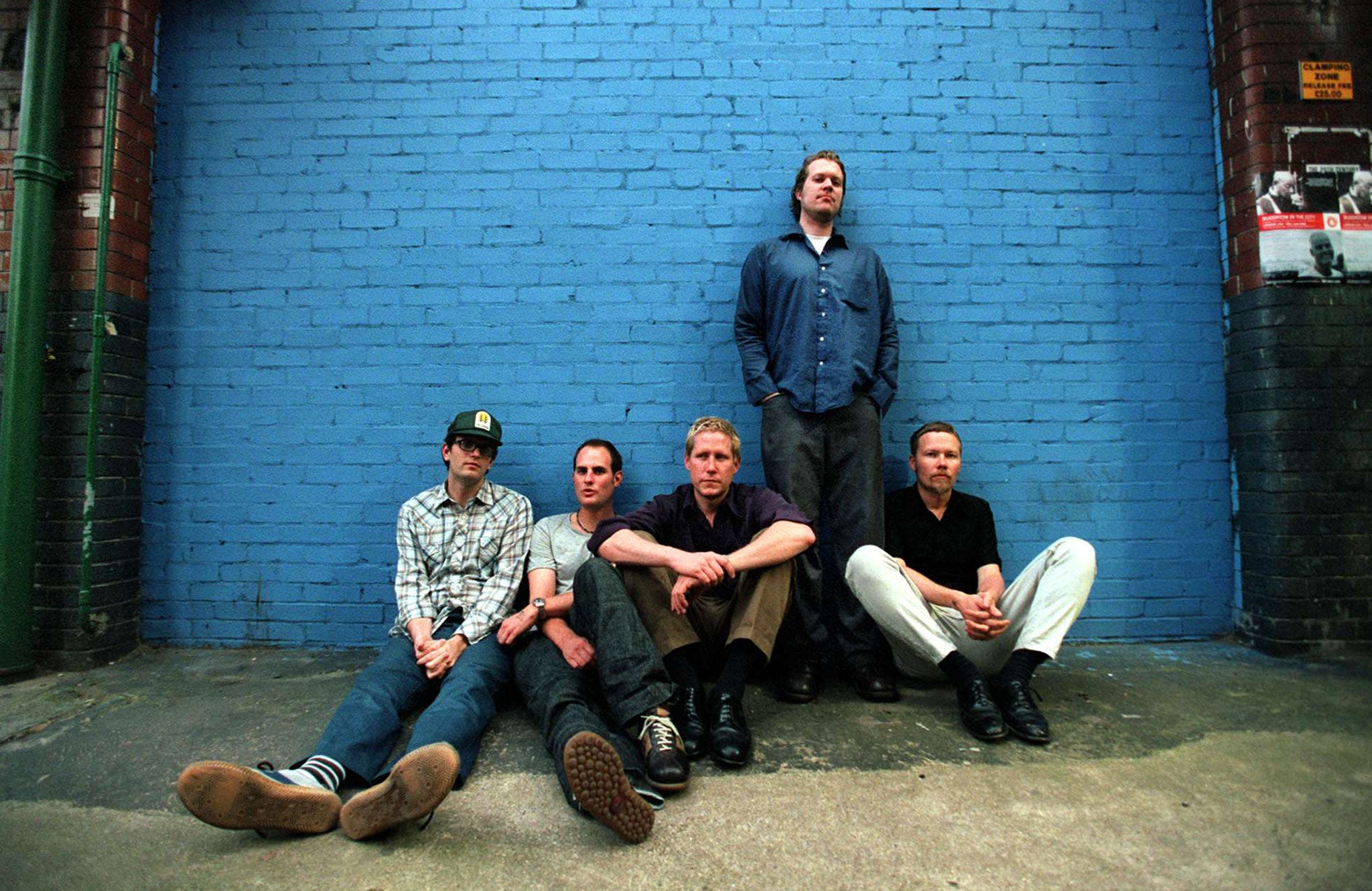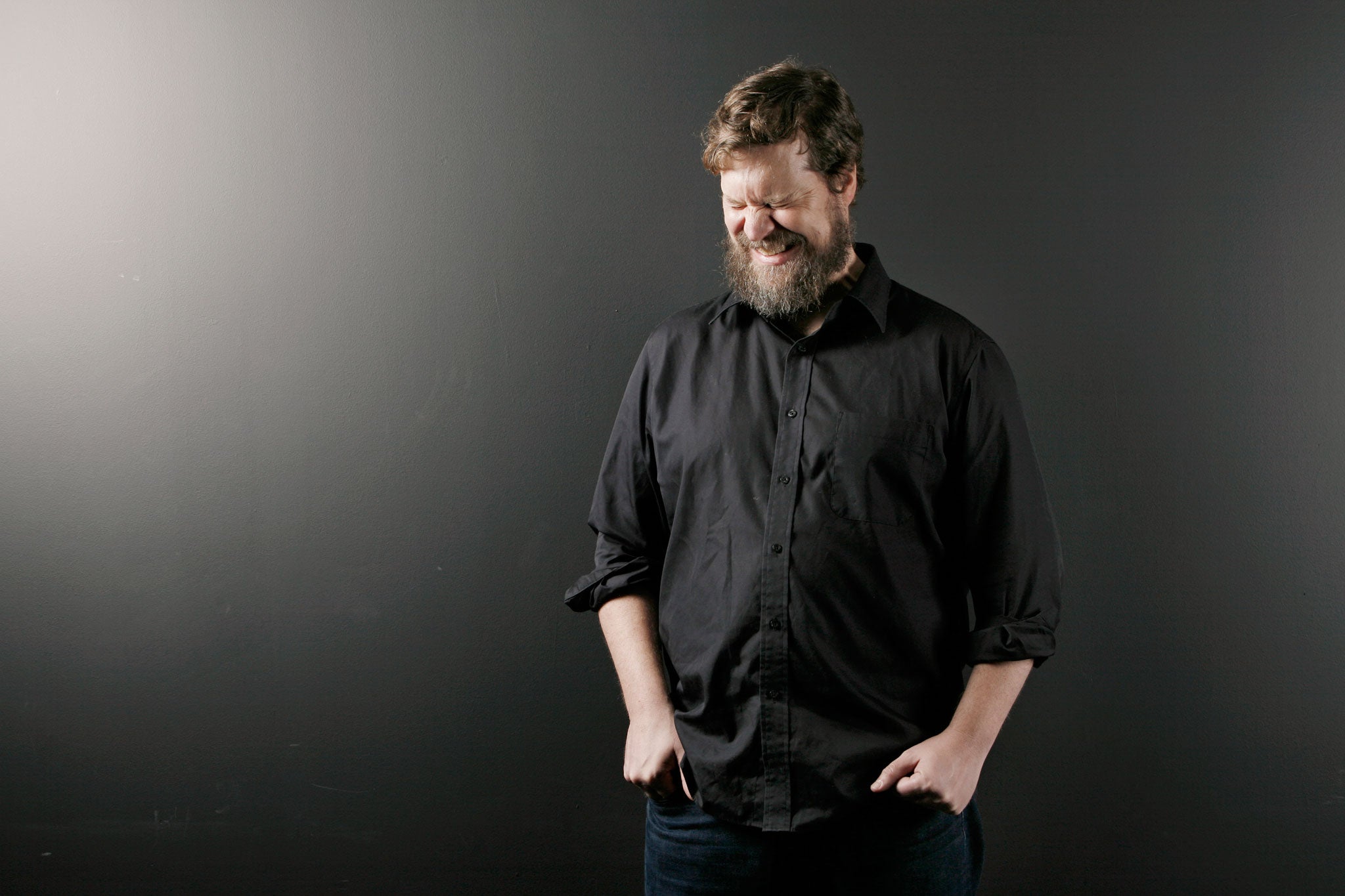How John Grant emerged from the booze and cocaine to find happiness (in Iceland...)
Addiction, illness and heartbreak; John Grant has been through it all. But could things finally be looking up for the singer-songwriter?

Your support helps us to tell the story
From reproductive rights to climate change to Big Tech, The Independent is on the ground when the story is developing. Whether it's investigating the financials of Elon Musk's pro-Trump PAC or producing our latest documentary, 'The A Word', which shines a light on the American women fighting for reproductive rights, we know how important it is to parse out the facts from the messaging.
At such a critical moment in US history, we need reporters on the ground. Your donation allows us to keep sending journalists to speak to both sides of the story.
The Independent is trusted by Americans across the entire political spectrum. And unlike many other quality news outlets, we choose not to lock Americans out of our reporting and analysis with paywalls. We believe quality journalism should be available to everyone, paid for by those who can afford it.
Your support makes all the difference.John Grant and I have been having a love affair for a couple of years before I meet him. He doesn’t know this, of course, and when we finally come face-to-face, he takes the news of our relationship with surprising good grace.
Certainly, it's to his credit that, when I tell him it's a rare day when I don't listen to his most recent album, Pale Green Ghosts, several times over, and that I spent much of the summer driving around France with the windows down singing: "I am the greatest motherf***er that you're ever going to meet" at passing cows in honour of his exquisitely self-deprecating single "GMF", he doesn't mumble his apologies and do a runner.
But here's the thing about Grant: he finds admiration, whether from fans of his music or from friends and partners, genuinely shocking. A lifetime spent grappling with trauma, from the ferocious homophobia he endured through his early years in Colorado, and the alcoholism and drug addiction that beset his twenties and early thirties, to his HIV diagnosis in 2011, means that his default setting is deep self-loathing.
"When I reached my senior year in high school I fell into a hole that took a couple of decades to get out of," he tells me later. "Becoming a musician was all about escape. It was about getting away from the foulness that was me."
We are sitting outside a coffee shop in Salford's Media City, where the 46-year-old is in the midst of rehearsals with the BBC Philharmonic Orchestra. The following day they will be playing songs from Pale Green Ghosts and its predecessor, 2010's Queen of Denmark, live on BBC6 Music, a one-off broadcast which will act as a taster to Grant's forthcoming tour with the Royal Northern Sinfonia later this month. I've spent two hours watching the rehearsal and the sheer breadth of the sound is astonishing. While the orchestral textures add lushness to Grant's earlier, piano-based tracks, the dark electronica of his second album takes on an even more dramatic and sinister hue.
Between songs, Grant shifts between piano, laptop and microphone, making notes and checking details with his arranger Fiona Brice, his forehead crumpled into a frown. At the end of an intense version of "Glacier", the musicians tap their stands appreciatively, but Grant apologises. "I'm sorry, I have a habit of kind of getting lost in the song," he tells them.
Later, out in the fresh air, and fortified with coffee and a pastry, he instantly relaxes. Grant is that rare beast, a musician who likes interviews. This isn't because he likes the sound of his voice but because, like many people who have endured terrible lows, he finds it impossible to keep a lid on what's going on in his head.
A few minutes in, Grant's company will reveal that he is articulate, funny and far from self-pitying. But he also gives the impression of a man working through his issues on a minute-by-minute basis. "I guess that's true," he ponders. "That inner narrative, the desire to understand the way I am, never really switches off. I wish it would, and I think that's why I used to like drinking. But then that created its own problems."
Right now, though, Grant admits that, in theory, he has much to be cheerful about. For starters there's his career that, after a few false starts, is going from strength to strength thanks to the success of Pale Green Ghosts, an album that was recorded in his adopted Reykjavik, and unexpectedly earnt him a nomination for this year's Best International Male at the Brit Awards, alongside Bruno Mars, Eminem and Justin Timberlake. He didn't win, which was a shame partly because he was the underdog, but also because it would have been fun, amid all the pizzazz, to see Grant, a man whose aesthetic is more hirsute trucker than designer-clad pop star, pick up his prize.

There's also the small matter of his personal life. "I'm in love with someone, and it's really nice," he volunteers, referring to his boyfriend (whom he'd rather not name), a graphic designer from Iceland. "I've discovered that [our relationship] is not the type of thing that ruins you.
"It's been more than a year now and he's just the sweetest, kindest [person], who has reminded me what being a man can mean. And, you know, he just really likes me."
I note that he sounds surprised by this.
"Well, I am," Grant replies. "I know I'm likeable, but living with me is different. Yes, I can be charming. That desire to please people and learning what to do to charm their socks off is something many of us do. But you get into a relationship and the party's over at some point. They see the real you. But it's survivable, I think."
If Grant is, by his standards, in a good place, he remains clear that being in a happy relationship "doesn't make the darkness go away. In fact it forces you to deal with things that you might have a hard time dealing with because this other person is expecting to have access to all of you. And they should."
This access works both ways, of course, and Grant's previous, troubled relationship with a man known only as TC provided rich pickings on both of his solo albums. On Queen of Denmark he was described by Grant as his "one and only", though on the caustic Pale Green Ghosts the singer revises his opinion, calling him "supercilious, pretty and ridiculous" and, on "Vietnam", likens him to the toxic herbicide Agent Orange.
Given how their personal lives seem likely to be broadcast to a substantial audience, one might imagine any prospective partner of Grant's would approach a relationship with caution. "Oddly, with my boyfriend, it's never been mentioned," says Grant. "He's been through some rough shit too, so it's not like he's naive. Often, when you write these things, it's more revealing about who you are. It's not like I come out of these songs looking good."

Grant lived in Michigan until he was 12, when he and his family moved to the countryside in Colorado. His father, a manufacturing engineer at an aerospace company, built their house himself. His parents attended a Southern Baptist church where fellow worshippers, clocking his homosexuality, treated him as a pariah. His parents weren't much better, sending their son to see a psychologist. "Their attitude was, 'Something is wrong with you and we're going to fix it,'" Grant recalls. "I was told that I was betraying everything that I was taught, simply by being myself."
At school he was frequently attacked, physically and verbally, though he found refuge in a drama class. "The teacher thought I was good and encouraged me to go into acting. But in my senior year, when I was having a really difficult time dealing with myself, I had to do an audition in front of the class. These were people I liked and knew well. But I had become so hyper-aware of myself, so disgusted, that I froze. I couldn't move or speak, and I was thinking, 'What is wrong with you?' That feeling lasted 20 years."
In 1988, he moved to Germany to study (he is now fluent in four languages). There he got deeper into a drinking habit that had begun in his mid-teens, and began using cocaine. He was also experiencing panic attacks and agoraphobia. "That was when I started to deal with really severe depression and crushing anxiety. It was like a horror movie for me," he says.

On moving back to Colorado in 1994, Grant started the Denver band the Czars. They released five albums, though while their magnificently morose songs were loved by critics, they were largely ignored by the masses. Looking back, he feels little pride at their 10-year career, during which, he says, "I was still trying to be what I thought other people wanted me to be. But everyone just thought I was an arrogant prick."
The year the Czars split up, Grant decided it was time to address his addictions. Cocaine had made him scared of dying, and he'd been to hospital on several occasions, believing he was having a heart attack. "I met someone who talked to me about AA, and I could see there was a way out."
It would be another six years before Grant would release any more music. For three of those he worked at the famous New York restaurant the Gramercy Tavern while studying Russian medical translation. When, in 2010, he made his first solo LP, it seemed that life was beginning to take on a semblance of normality. But then a text arrived from an ex-lover who had discovered he had HIV. Grant was in Sweden and went straight to hospital to be tested. A week later the results confirmed that he, too, had the virus.

Grant didn't tell anyone for more than a year but then, during a live performance at London's Meltdown Festival, he announced it to a stunned audience. "At that point I hadn't even told anyone in my family," he recalls. "I waited because I wanted to work out why I'd allowed this to happen to me… why, while making the effort to get sober, I persisted with the misuse of sex, which led to me getting this disease. But when I came out on stage I thought, 'It's time for me to own this.' I mean, I was about to sing a song about it, so it seemed a good time."
Despite his many ordeals, and the ever-present sense that life could unravel again at any time, Grant says there have been moments lately when life seems close to manageable. He has been sober for 10 years, and in the past year has taken up running – "though it took four months where I began to see it not as punishment. I kept thinking: 'I know this is going to be a great feeling once I've stopped feeling like I'm going to die.'"
And, for the first time in nearly 20 years, he has a permanent home, in Iceland. "I love it," he smiles. "The landscape is so different – it looks like a naked, cold Hawaii. And the people are peaceful in a way I haven't experienced before.
"I struggle with wanting to come out of my shell because to me the world is a hostile place. But I feel like it's a place where I could perhaps be part of a community. It's a place where I could actually be me."
John Grant begins his tour with the Royal Northern Sinfonia at Liverpool's Philharmonic Hall on 22 November. For dates, see johngrantmusic.com. 'The Best of The Czars' is released on Bella Union on 1 December. 'John Grant with the BBC Philharmonic Orchestra, Live in Concert' will be out on 1 December
Join our commenting forum
Join thought-provoking conversations, follow other Independent readers and see their replies
Comments